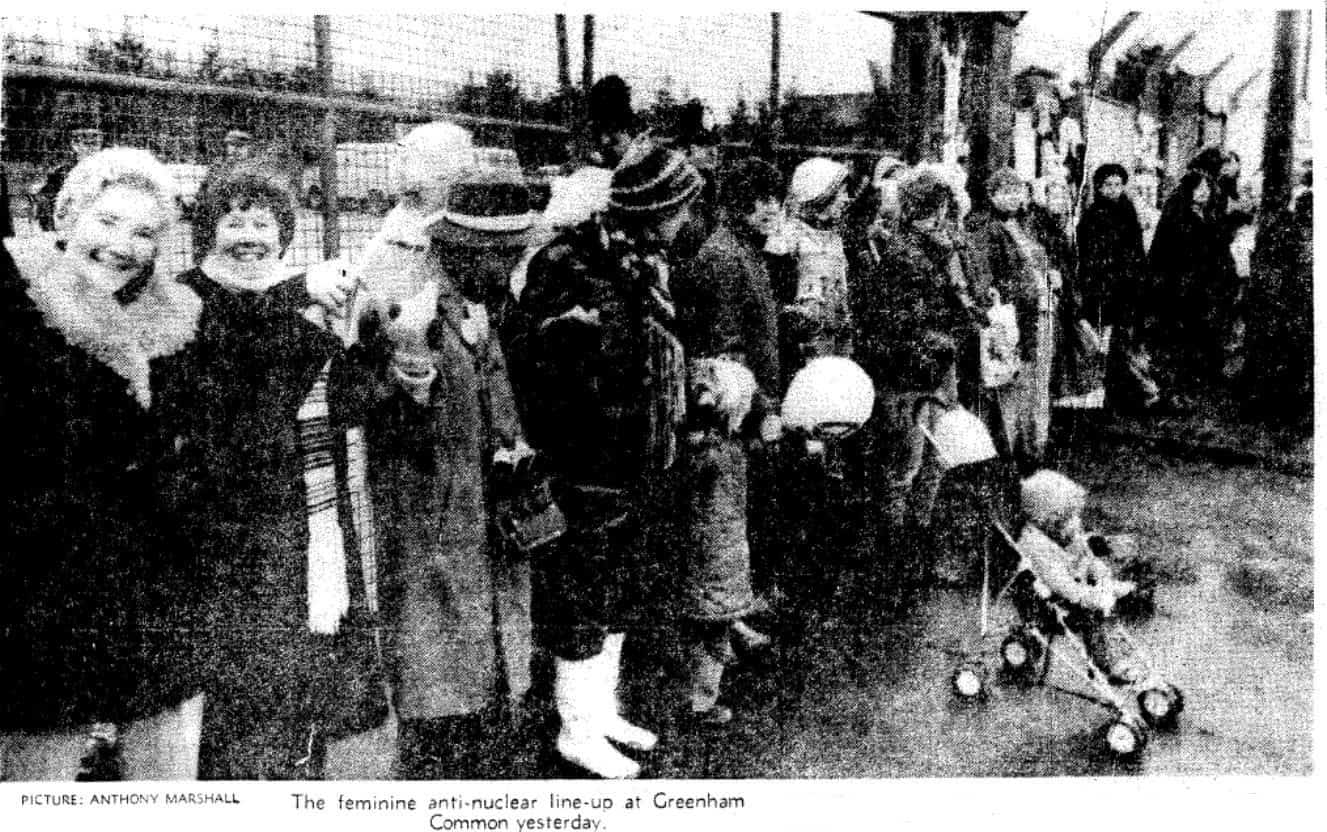| By Megan Bowler, Gale Ambassador at the University of Liverpool |
In an ardent and empowered, non-violent and non-alignment protest, more than 70,000 women demonstrated for nearly twenty years between 1981-2000 against the implementation of 96 American Cruise Missiles on the RAF Greenham Common base, Berkshire. Throughout the entirety of the women’s campaign, a conflict between feminist and anti-nuclear sentiment prevailed within highly derogatory and grossly gendered national and international news reports. As a result, the rhetorical nature of the protest came to be mispresented as an entirely feminist, rather than a predominately nuclear, issue.
When addressing a historical event as socially and politically contested as the Greenham Common protest, the use of primary source material is essential to ensure that our version of history is not distorted nor manipulated by partial, often intentionally prejudiced, media coverage. Through the use of Gale Primary Sources one may begin to consider the extent to which an attack on femininity, conveyed by a series of purposefully disparaging news reports, delegitimised the Greenham women and their campaign rhetoric in an attempt to conceal wider nuclear anxieties. On the other hand, the success of groups such as the Campaign for Nuclear Disarmament (CND) in animating anti-nuclear protests in the 1980s, and previously the 1950s, gave women a greater sense of power and control in a primarily patriarchal society. Therefore, disputes around nuclearism, liberalism and equal rights were often a part of the anti-feminist condemnation of the Greenham women. These attitudes are particularly prevalent when studying sources found within Gale’s Archives of Sexuality and Gender and Daily Mail Historical Archive.

By staging a series of tactical and observably scandalous protests, the Greenham women repeatedly captured the attention and imagination of the world’s media. The archives contained within Gale’s primary source database successfully preserve this moment in history and allow us to experience everyday camp life as it transpired. From dancing upon the missile silos, to giving birth – the archives provide an almost complete documentation of events. Therefore, Gale resources allow us to first critically engage with vast quantities of primary sources and to then question and cross-reference the material that has been presented to us. For example, when studying Greenham Common, it is not unusual to question why, when identifying trends and commonalities within newspaper reports, there were such apparent influxes of negative media attention. The answer to which appears to be that reports often coincided with external foreign and political nuclear decisions.
![Left: "Peace Camp in World's Eye." New Directions for Women, March-April 1983, p. [1]. Archives of Sexuality & Gender, http://tinyurl.galegroup.com/tinyurl/9MDKY2](http://blog.gale.cengage.co.uk/wp-content/uploads/2019/03/Greenham-2-1024x351.jpg)
Right: Payne, Stewart. “The CND Baby Scandal.” Daily Mail, 29 July 1983, p. [1]+. Daily Mail Historical Archive, 1896-2004, http://tinyurl.galegroup.com/tinyurl/9N9e3X.
I found one source to be particularly useful when attempting to determine the extent to which the true nature of the protest was clouded by the many different and contrasting ways in which it has been reported upon, as Alison Young suggested in 1990 in her book Femininity in Dissent.[1] This was an article published in the Daily Mail in 1983 called “The Fantasy of Greenham Common”. Within the article, Leslie repeatedly refers to the women as “naïve” and “childish,” highlighting that “what makes their views verge on near-lunacy is their belief in the magical power of women to put the world right simply because they are women.” Formerly mentioned concerns of liberalism, centred on the improved position of women post-1960s, are prevalent here as Leslie attempts to denounce the campaign. Furthermore, her reference to the Greenham women as “burly lesbians” was not an uncommon stigmatisation used within reports of the peace camp. A Gay News article found within Archives of Sexuality and Gender reacts to such a prejudicial stereotype by sarcastically proposing that: “Presumably if it’s Lesbian you don’t have to take it seriously”.

By advertently stigmatising many of these women in an attempt to homogenise the group under one definitive stereotype, their unique identities as protestors, mothers, social rights activists and feminists are undermined, or lost all together. As we commemorate another month of women’s history, we must ensure that that history is not diminished nor discredited as a result of dominant, yet seemingly misconstrued, master narratives.
“Well-behaved women seldom make history” … and the Greenham women were certainly not an exception to that! [2] Happy Women’s History Month!
[1] A. Young, Femininity in Dissent (London: Routledge, 1990) p. 2
[2] A now famous quote from Laurel Thatcher Ulrich, ‘“Vertuous [sic] Women Found: New England Ministerial Literature, 1668-1735.” American Quarterly 28 (1): 20-40, 1976
Blog post cover image: Davies, Hugh. “20,000 Women in Missile Protest.” Daily Telegraph, 13 Dec. 1982, p. [1]+. The Telegraph Historical Archive, http://tinyurl.galegroup.com/tinyurl/9Qjhv8.


